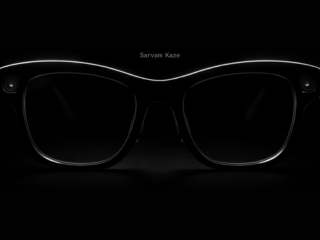- Home
- Science
- Science News
- US NAS Says Use Gene Editing Tools for Disease, Not Designer Babies
US NAS Says Use Gene-Editing Tools for Disease, Not Designer Babies
Breakthrough gene-editing technologies should be used for treating disease or disabilities, said a body of scientific experts, not for changes like creating a smarter, taller or better-looking child.
The US National Academy of Sciences issued a 200-page-plus report Tuesday meant to serve as ethical guidelines for gene-editing technologies that are quickly becoming a mainstay in medical research. One such technology, known as Crispr, can elegantly snip out sections of DNA and replace them with other genetic instructions. Used to treat or potentially cure diseases caused by genetic defects, the technology has also raised worries about non-medical alterations that could be passed from one generation to the next.
The committee of more than 20 scientists and ethicists spent more than a year working on the recommendations, meant as a road map for researchers as genome-editing techniques become cheaper and more advanced. While the committee didn't recommend a wholesale ban on making inheritable changes to DNA or editing human embryos, they said the technology should be reserved for "treatment or prevention of diseases or disability."
"There is some indication of public discomfort with using genome editing for what is deemed to be enhancement, whether for fear of exacerbating social inequities or of creating social pressure for people to use technologies they would not otherwise choose," the group said in the report.
For now, the leading gene-editing companies, including Editas Medicine Inc., Intellia Therapeutics Inc. and Crispr Therapeutics AG, are not attempting to edit embryos and their experimental treatments will not be inheritable. The report had no recommendations that would curb those companies' current work.
"We agree with the report's basic view that there is a robust regulatory framework in place in the U.S. that is pro-patient, pro-innovation" for non-inheritable genome editing, Editas spokesman Tim Hunt said in an e-mail. Nessan Bermingham, CEO of Intellia, called the report's stance "welcome news."
Gene editing isn't a new concept, but the invention of the technology called Crispr-Cas9 has led to an explosion of interest by making it less expensive, faster and easier to use. Biotechnology companies have hopes of using it to treat genetic diseases including of the eye, liver, lung, and various cancers.
The field was shaken in 2015 when a group of Chinese researchers published results from an experiment using the technology on human embryos, even though they said the embryos were not viable. That set off a debate about how the technology should be used, particularly in sperm and eggs, where the changes could be inherited by future generations of offspring.
"Because the effects of such changes could be multigenerational, both the potential benefits and the potential harms could be multiplied," the scientific committee said in its report.
There are cases, though, where heritable editing of embryos may be "the only or the most acceptable option for parents who desire to have genetically related children while minimizing the risk of serious disease or disability in a prospective child." The group concluded that someday, "clinical trials could be initiated, if limited to only the most compelling circumstances."
© 2017 Bloomberg L.P.
Get your daily dose of tech news, reviews, and insights, in under 80 characters on Gadgets 360 Turbo. Connect with fellow tech lovers on our Forum. Follow us on X, Facebook, WhatsApp, Threads and Google News for instant updates. Catch all the action on our YouTube channel.
- Samsung Galaxy Unpacked 2026
- iPhone 17 Pro Max
- ChatGPT
- iOS 26
- Laptop Under 50000
- Smartwatch Under 10000
- Apple Vision Pro
- Oneplus 12
- OnePlus Nord CE 3 Lite 5G
- iPhone 13
- Xiaomi 14 Pro
- Oppo Find N3
- Tecno Spark Go (2023)
- Realme V30
- Best Phones Under 25000
- Samsung Galaxy S24 Series
- Cryptocurrency
- iQoo 12
- Samsung Galaxy S24 Ultra
- Giottus
- Samsung Galaxy Z Flip 5
- Apple 'Scary Fast'
- Housefull 5
- GoPro Hero 12 Black Review
- Invincible Season 2
- JioGlass
- HD Ready TV
- Latest Mobile Phones
- Compare Phones
- Lava Bold N2
- Vivo V60 Lite 4G
- Tecno Pova Curve 2 5G
- Lava Yuva Star 3
- Honor X6d
- OPPO K14x 5G
- Samsung Galaxy F70e 5G
- iQOO 15 Ultra
- Asus Vivobook 16 (M1605NAQ)
- Asus Vivobook 15 (2026)
- Brave Ark 2-in-1
- Black Shark Gaming Tablet
- boAt Chrome Iris
- HMD Watch P1
- Haier H5E Series
- Acerpure Nitro Z Series 100-inch QLED TV
- Asus ROG Ally
- Nintendo Switch Lite
- Haier 1.6 Ton 5 Star Inverter Split AC (HSU19G-MZAID5BN-INV)
- Haier 1.6 Ton 5 Star Inverter Split AC (HSU19G-MZAIM5BN-INV)


![[Partner Content] OPPO Reno15 Series: AI Portrait Camera, Popout and First Compact Reno](https://www.gadgets360.com/static/mobile/images/spacer.png)









